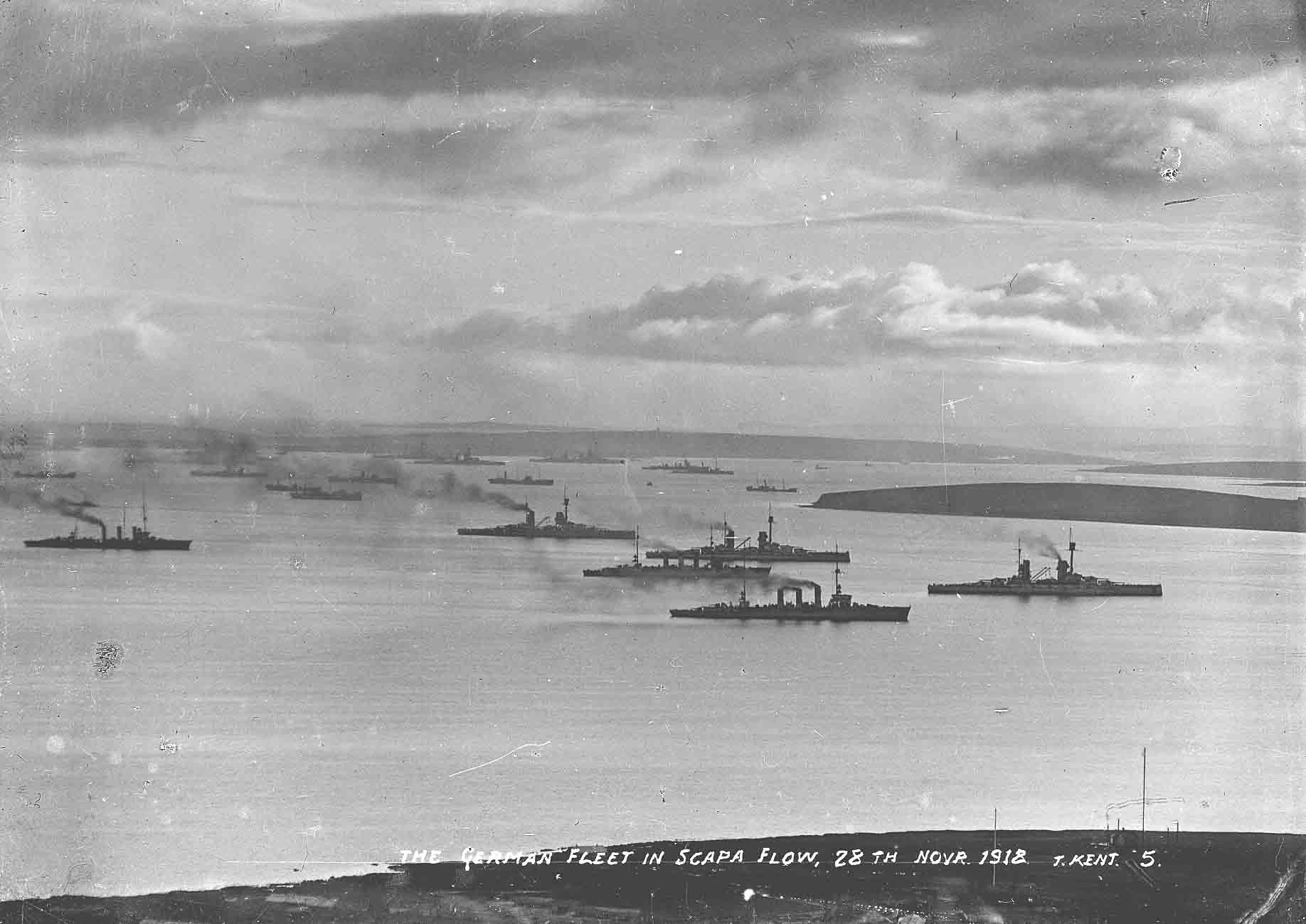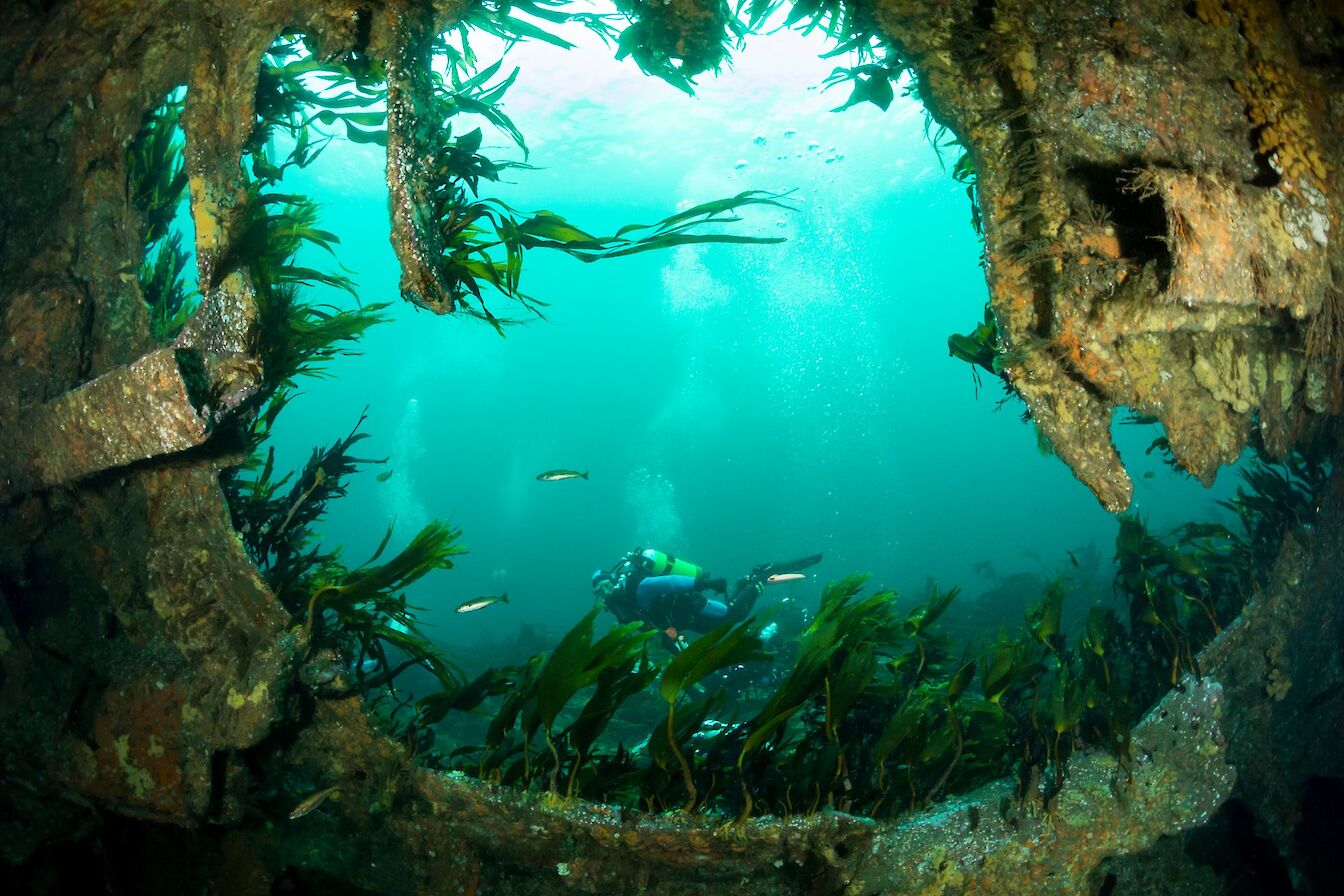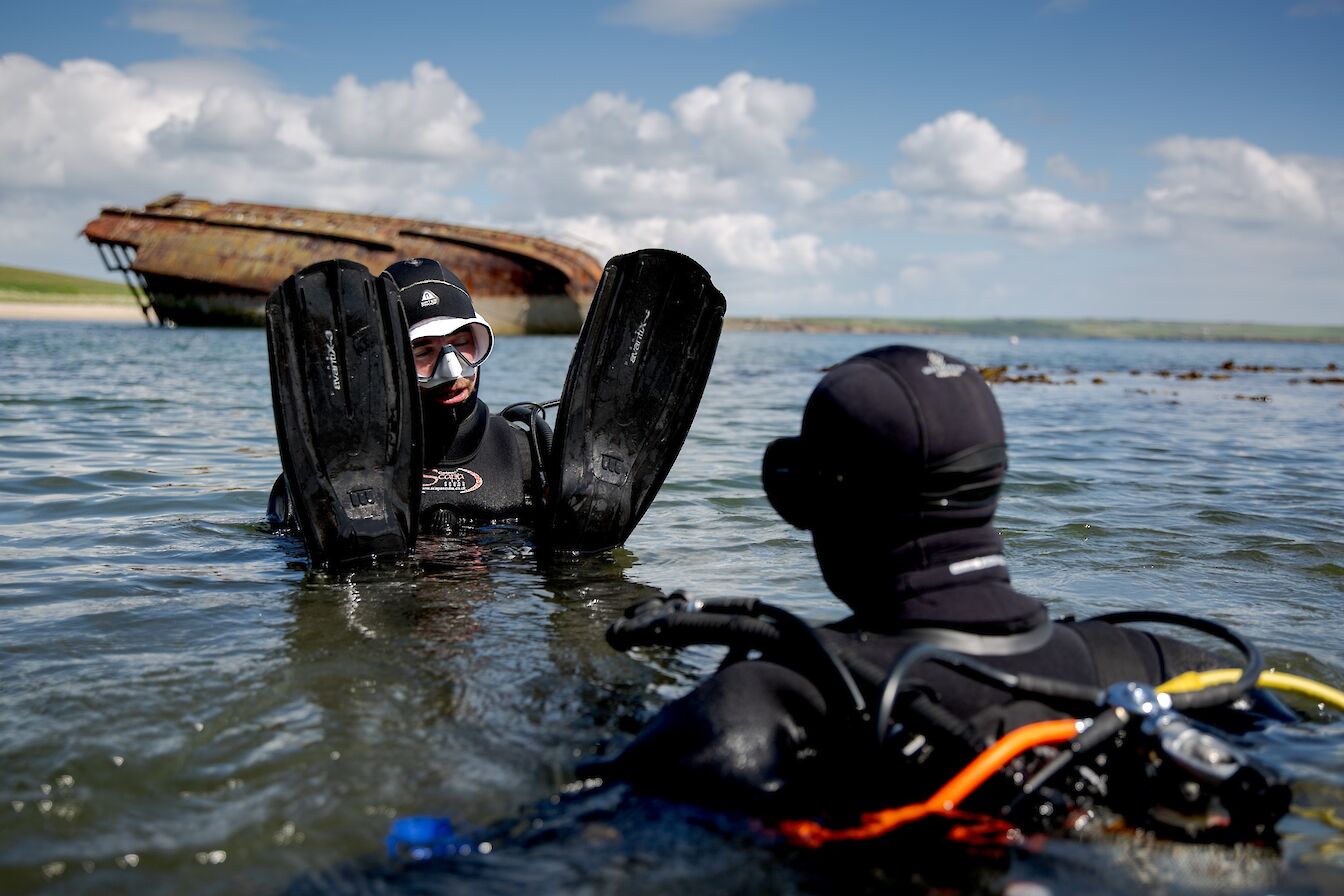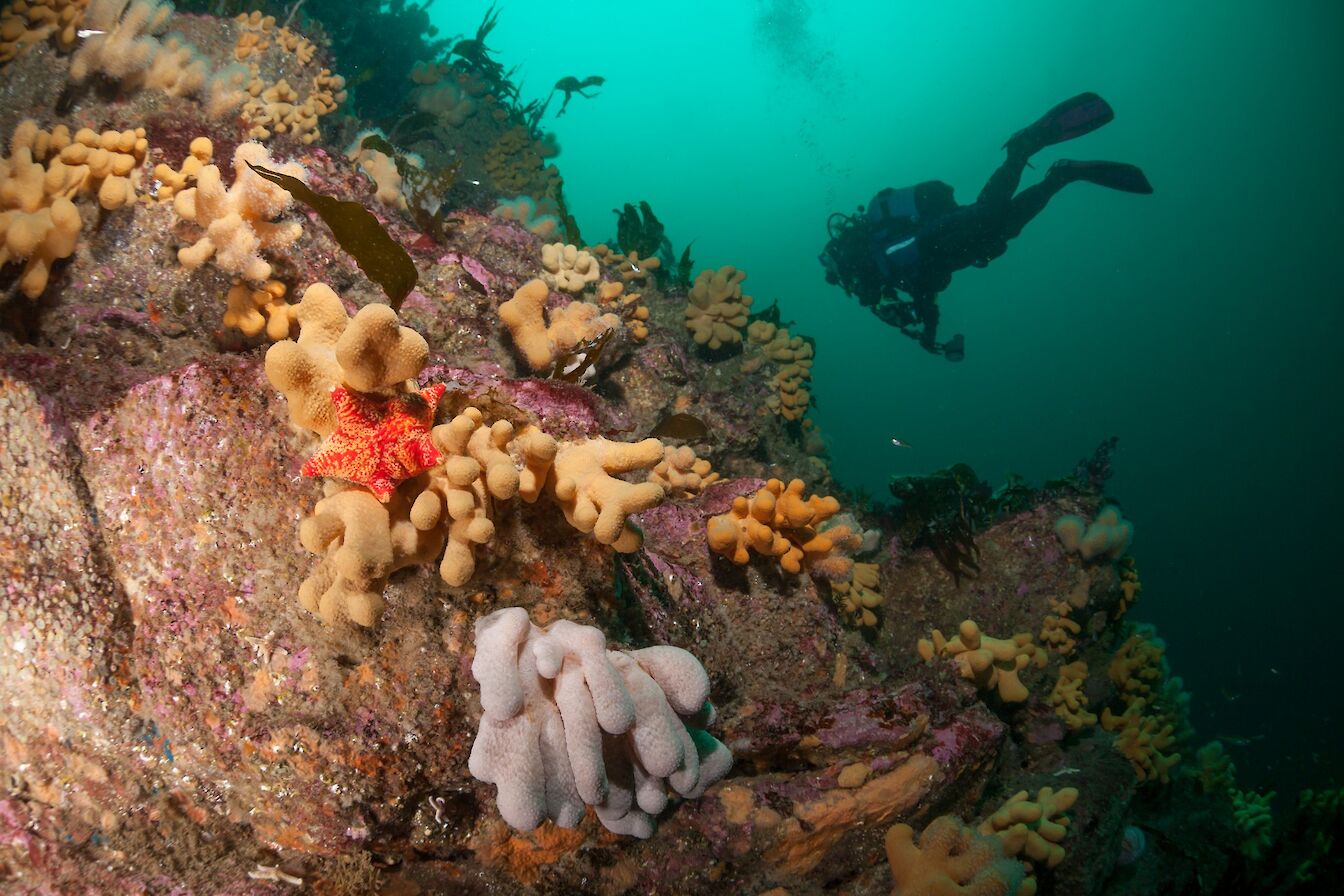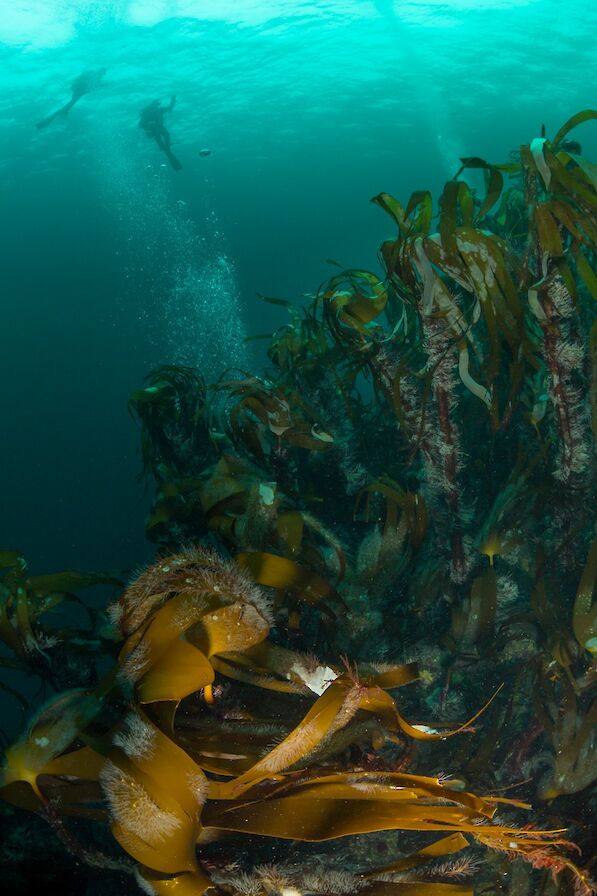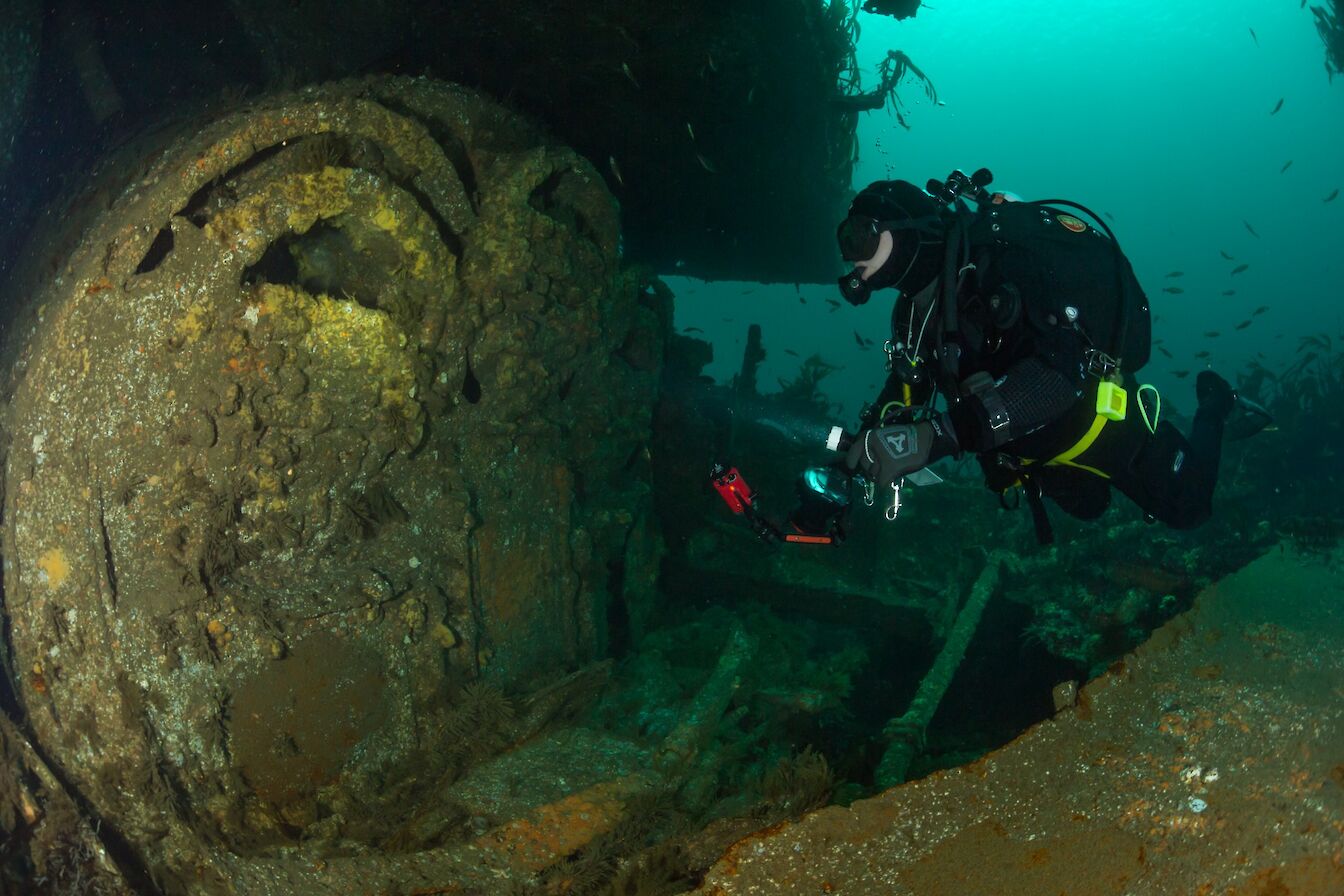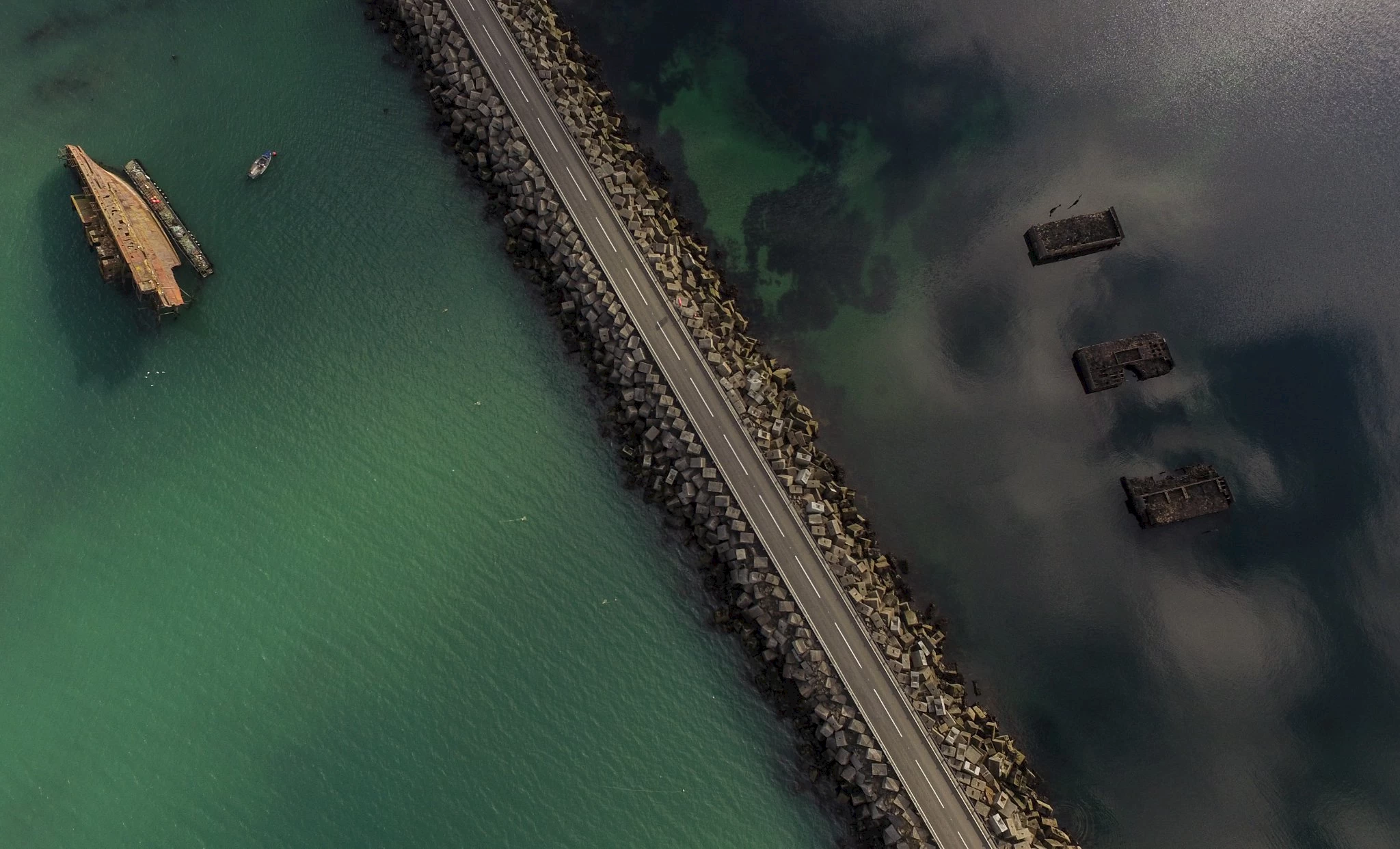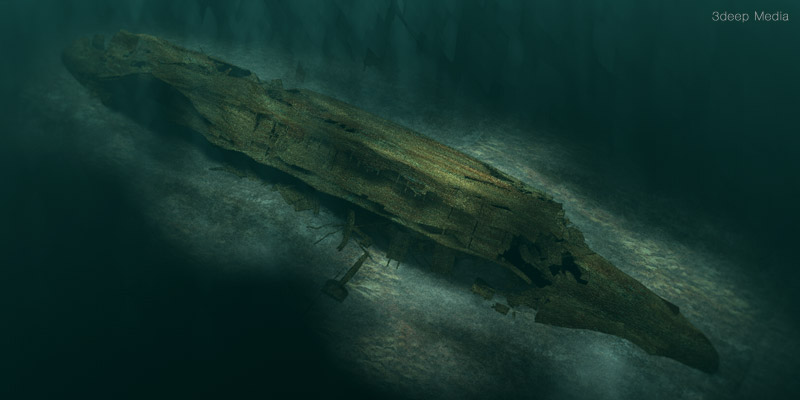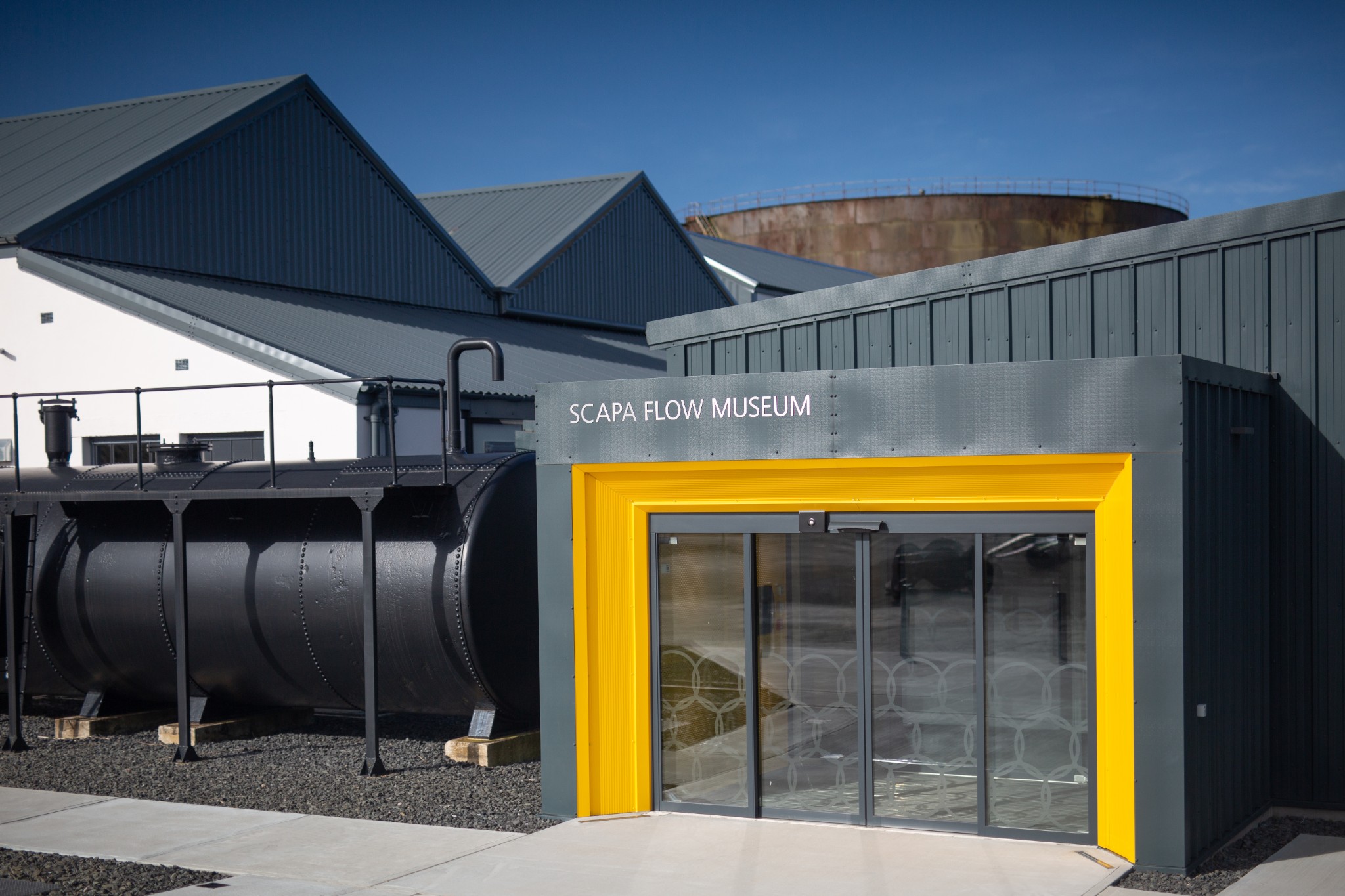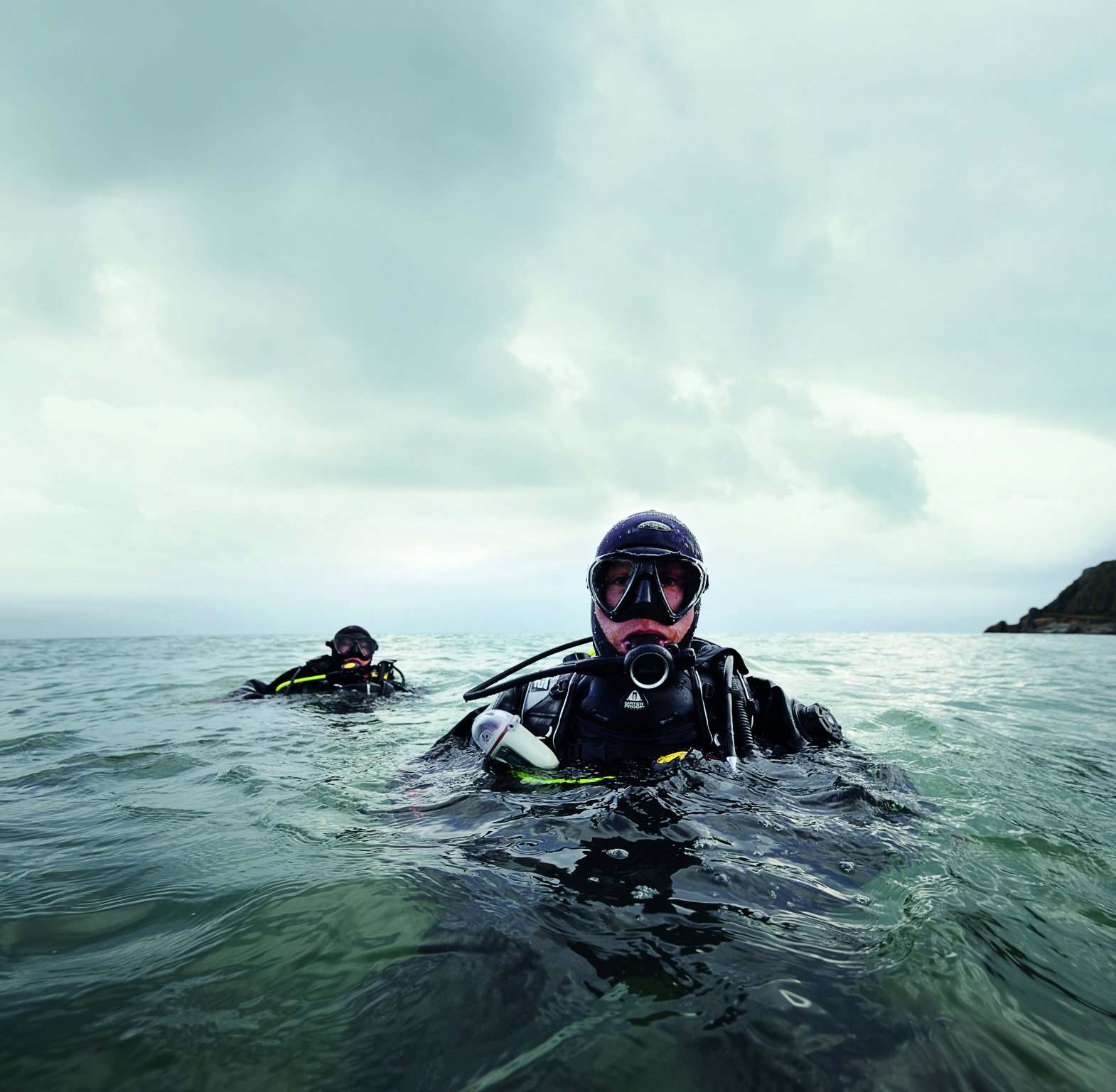Put simply, Orkney is one of the best diving locations in the world.
The seven remaining wrecks of the German High Seas Fleet, scuttled by their crews in Scapa Flow in 1919, attract divers from across the globe every year.
These hulking wartime ghosts aren’t the only underwater attraction though. There is a wealth of other wrecks to explore, and an incredible array of marine wildlife to discover in our cool, clear waters.
Snorkelling is popular at coastal locations like Yesnaby and amongst the rusting blockships left over from two world wars at the Churchill Barriers.
Diving in Scapa Flow can be an incredibly rewarding experience, but it can also be quite a challenge. The sheer scale of what’s on offer is hard to get your head around, and explorations on the German High Seas Fleet should only be carried out by qualified divers. Luckily, there are several excellent diving companies based in Orkney that are on hand to make sure your trip is special, and above all, safe. Browse the listings at the bottom of the page to find out more.
We’ve asked local skipper Bob Anderson from Clasina Charters for some helpful hints and tips so you can start planning your own trip.
- Seasons & conditions
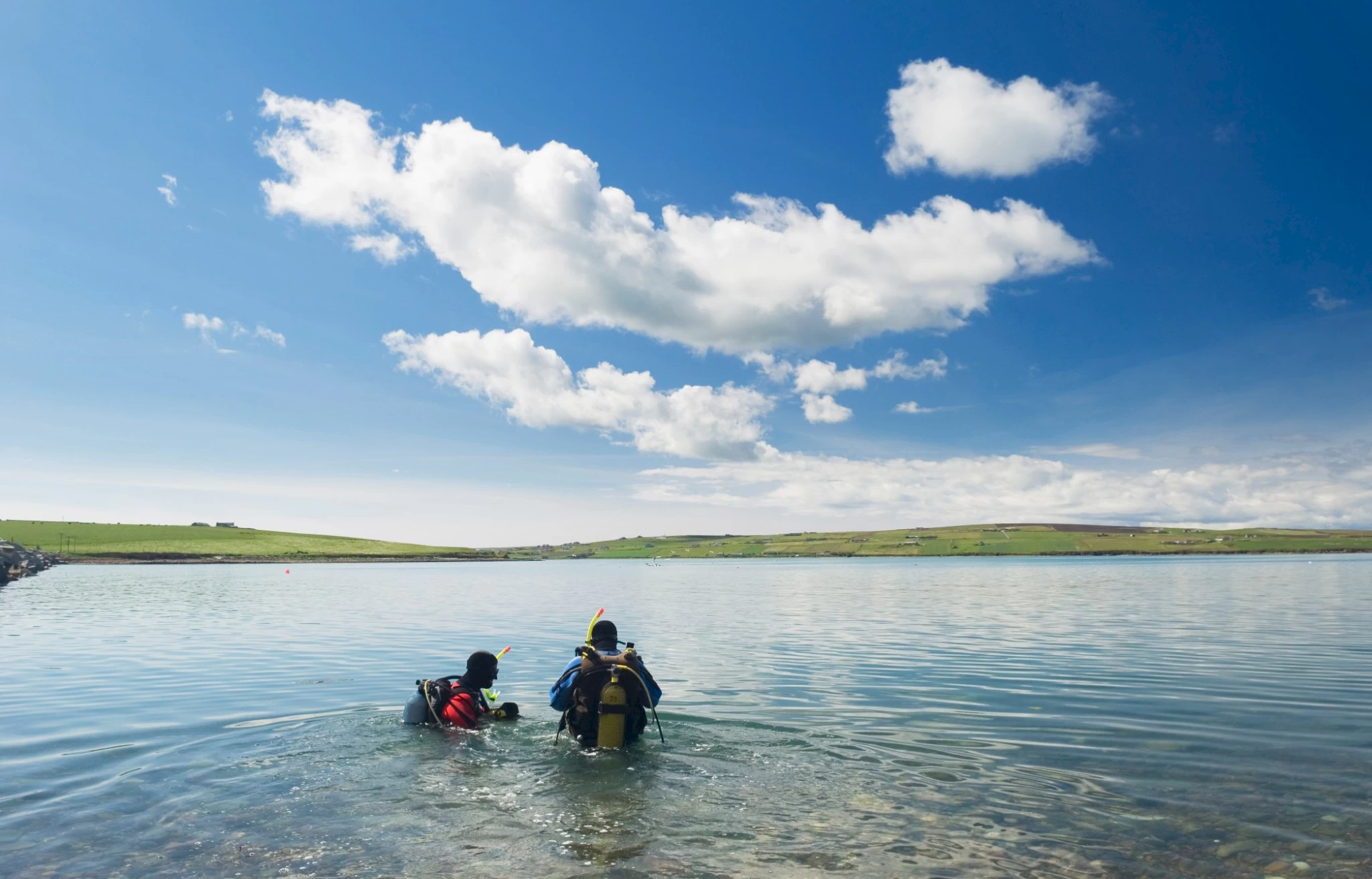
Diving at the Churchill Barriers - image by Iain Sarjeant/VisitScotland
The dive season in Orkney traditionally runs between Easter and early November, with the sea temperature reaching around 13 degrees Celsius by mid-September. Visibility can be around ten metres during the summer months, but this increases when the plankton dies back during the autumn. Scapa Flow is a natural harbour and diving can take place in wind conditions that would see vessels tied up in much of the rest of the country. - Dipping a toe
Descending to the wrecks of the German High Seas Fleet might seem daunting to a new or less-experienced diver, but there is a way to discover if the underwater world of Scapa Flow is for you. Kraken Diving offer try-a-dives at the Churchill Barriers, where the wrecks of blockships are a matter of metres away from shore in shallow water, and you’ll be accompanied by a fully qualified instructor. It’s an excellent first-step towards the full wreck exploration experience. - Jumping in
The blockships at the opposite end of Scapa Flow in Burra Sound were sunk to prevent enemy access to the great harbour’s western approaches. They now sit in the middle of a strong tide, so slack water is essential for diving. When the tide abates, divers descend to wrecks rich in colourful life, all thriving in the high energy of the turbulent water. The Tabarka always ranks as a firm favourite – a memorable ship amongst the trio to be found in the Sound.
- Bread and butter
There are four German cruisers still on the seabed in Scapa Flow in around 36 metres of water. These smaller wrecks offer an easy introduction to the complexity of a warship, with the SMS Koln still relatively intact. The three battleships remain the main draw to Scapa Flow, though. Resting upside down on the seabed at a depth of around 45 metres, these massive hulks often seem impenetrable at first sight. However, with careful exploration, they come alive and start to reveal their secrets. Some 3,000 divers a year visit Scapa Flow to explore these magnificent seven and return time after time.
- Off the beaten track
A few wrecks lie off the beaten path in Orkney waters and offer an interesting diversion. The James Barrie is a Grimsby trawler that sank in the approaches off Hoxa Head in 1969 and lies on her side, much like the day she went down. Further afield, the Manina lies at the base of Sule Stack, 35 miles west of Orkney, providing adventure diving in oceanic water.
Map of Scapa Flow's wrecks
View our map to get an idea of what there is to see on the seabed in and around Scapa Flow.
Now that you know what to expect, take a look at our checklist to make sure your visit to Orkney and Scapa Flow goes as smoothly as possible:
- Come prepared – check the NorthLink Ferries and Pentland Ferries websites to keep up to date with rules and regulations for travelling with dive equipment.
- Do your homework – Orkney has a rich maritime history, and the underwater experience is unique. Do your research and your experience will be all the better for it.
- Take diving seriously – a mistake underwater can have serious consequences. Be safe.
- Have fun – Orkney has a special allure, and there is always more to explore. Hopefully your Orcadian adventures will have only just begun.
Useful links
View the listings below to discover more about diving in Orkney and connect with local dive boat operators.
